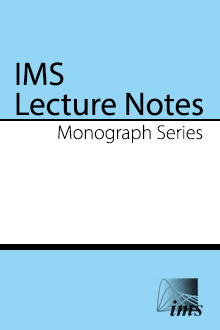Abstract
This research deals with massive multiple hypothesis testing. First regarding multiple tests as an estimation problem under a proper population model, an error measurement called Erroneous Rejection Ratio (ERR) is introduced and related to the False Discovery Rate (FDR). ERR is an error measurement similar in spirit to FDR, and it greatly simplifies the analytical study of error properties of multiple test procedures. Next an improved estimator of the proportion of true null hypotheses and a data adaptive significance threshold criterion are developed. Some asymptotic error properties of the significant threshold criterion is established in terms of ERR under distributional assumptions widely satisfied in recent applications. A simulation study provides clear evidence that the proposed estimator of the proportion of true null hypotheses outperforms the existing estimators of this important parameter in massive multiple tests. Both analytical and simulation studies indicate that the proposed significance threshold criterion can provide a reasonable balance between the amounts of false positive and false negative errors, thereby complementing and extending the various FDR control procedures. S-plus/R code is available from the author upon request.
Information
Digital Object Identifier: 10.1214/074921706000000392


